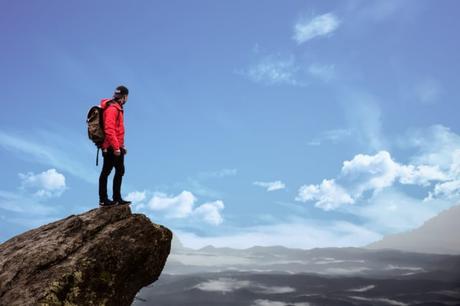
Hiking is one of the sports activities preferred by many travelers for various reasons. All people can enjoy hiking whether you are a kid or at advanced age because hiking can be done at different levels of difficulty. You can hike with your friends, family, strangers, or yourself. Above all, it allows you to get close to nature.
Although it seems very obvious, the most important thing before doing a hiking trail is to know very well the conditions of the trail. We must know very well where the trail begins and ends, how many kilometers we will travel and how much time it takes, what is the difficulty level of the trail and if it is in good condition throughout its trail. It is not advisable to undertake a trail without having all these factors clear.
In addition to knowing the general conditions of the territory through which we will travel, it is very important to know if time will be on our side. There are weather conditions that prevent hiking and others that, although difficult, will be salvageable if we take appropriate measures in terms of equipment. Let us make sure that the march will not be impeded by the lack of visibility caused by dense fog or torrential rain, we must also be careful with high temperatures.
Footwear and Clothes for Hiking
Not worth any footwear for trekking. And not only should we avoid heels or shoes by pure logic, also the thin-soled shoes will be very uncomfortable. The ideal is to have a shoe suitable for mountain, which has a thick sole, holds the ankle and is waterproof. Ankle sprains and slips are the most common accidents when hiking. Equally, the clothes must be adequate, you have to wear comfortable clothes that allow the movement well and be prepared with some coat in case we are surprised by a change in time. You can read here other tips for the health of the traveler's feet.
Navigation and Communication
Although we have been informed of how the trail is previously, as we saw in point one, it is also recommended to carry navigation tools like a map and compass. The mobile phone and GPS can fulfill the function, but be careful to trust an electronic device because we run the risk of running out of cell service.
If you choose a map, make sure it is a new one. The outdated map will misguide you. Personally, I recommend GoFindMe GPS tracker. It allows you to share real-time location on the phone app even when there's no cellular service.
If you encounter an emergency, you can send SOS signals to others without cell service. GoFindMe is one of the best personal GPS tracker. The battery lasts as long as 72 hours, and tracking range can reach up to 5 kilometers. What's more, there' s no monthly fee for this tracking device.
Although many believe that the trekking stick is a dispensable complement when hiking, in reality, it is almost essential. The cane helps maintain balance and reduces fatigue in the knees and ankles. It also reduces the risk of sprains and will, of course, help us to dissipate weeds in less well-kept areas.
Food and Hydration during Hiking
Dehydration causes disorientation, in addition to pulls, fainting, fainting and in extreme cases until death. For any walk, regardless of its duration or difficulty, we must carry at least a liter and a half of water or isotonic drinks . It is recommended to drink in small doses but continued. You should never wait to be thirsty. As for food, it is always recommended that we eat something light during the march, in addition to having consumed foods rich in sugars and energy before leaving. You don't have to make big stops during the trail, but the stops of about ten minutes are more indicated . It is recommended to bring nuts, energy barrels, small sandwiches, fruit or cookies.
And last but not least, we must not forget that the natural environment belongs to everyone. That is why this last tip is to remember that when we practice hiking we must be respectful of the environment : do not light fires, leave no residue and be careful with the flora and fauna of the place.


